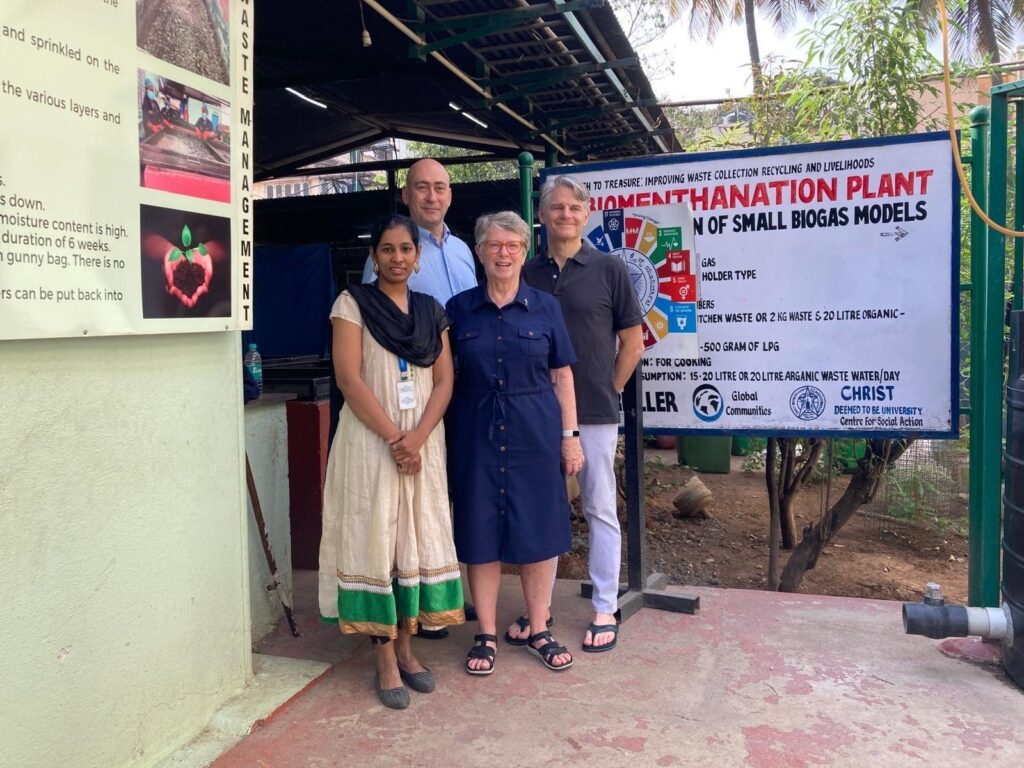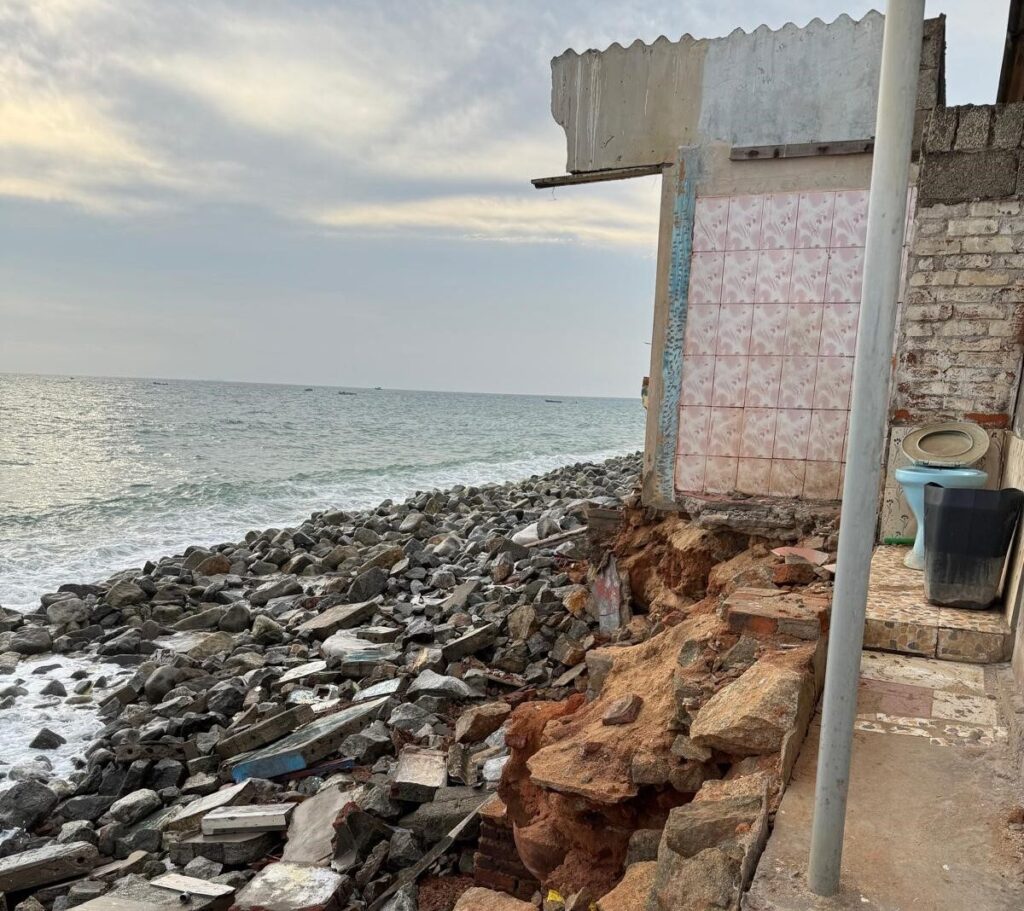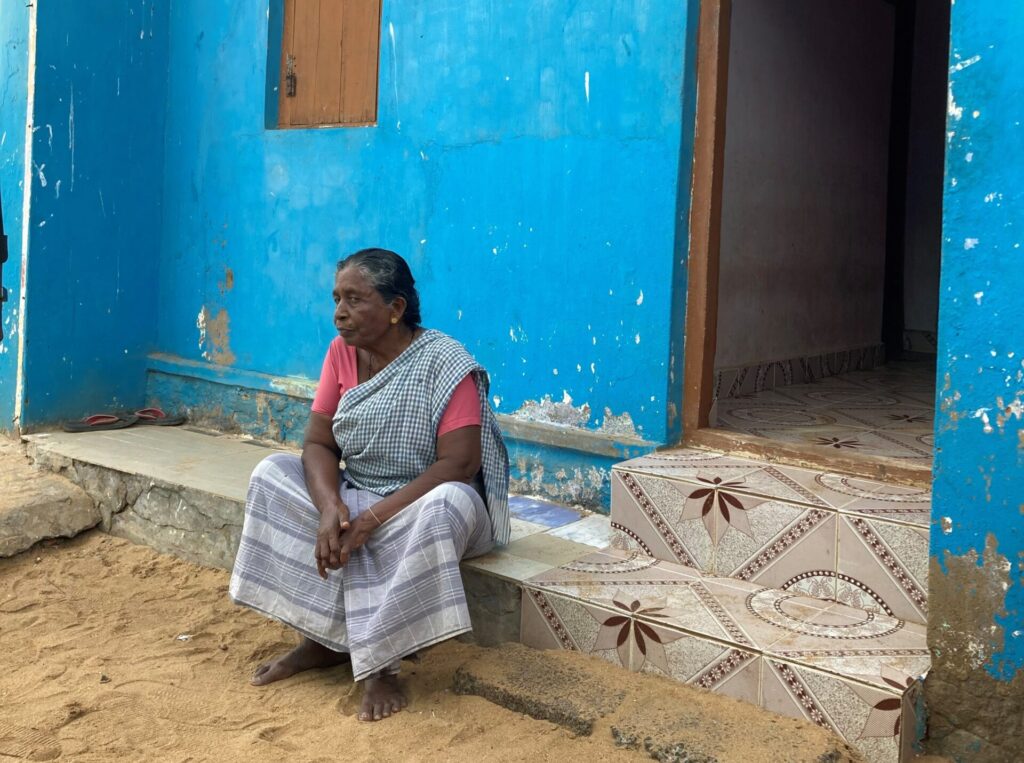Sister Studies Ethics of Displacement
October 31, 2025
Sister Maryanne Loughry (navy blue dress) with other members of the interdisciplinary team
Sister Maryanne Loughry is part of an inter-disciplinary team in India studying the ethical issues arising from people being displaced due to the impacts of a changing climate.
It is a sobering fact that by 2050 it is projected that 1.2 billion people could be displaced by the impacts of natural disasters and climate change.
It is no surprise, therefore, that this issue was top of mind for Boston College when it was approached by Dutch Catholic Foundation, Porticus, who were seeking to fund a global ethics project into some of the major issues of our time.
In response, an inter-disciplinary project commenced involving a theologian, scientist and psychologist from Boston College working with Christ University in Bangalore, India.
Institute Sister, Maryanne Loughry, who is a psychologist, is one of the three members of the team.
“We are supporting local researchers who are engaging with communities in Kerala in South-West India. The project is looking at the ethical issues regarding people being displaced by climate.
“For centuries these people have fished in the rivers and seas in traditional boats using traditional methods. This has now all sadly changed. There is a harbour being built which was a response to there not being enough to sustain the people’s livelihoods in the area and it was meant to be a new source of income and work. However, it has decimated the local fishing industry.”
Climate having a multiplier effect

All that is left of one of the houses that has been washed away
For some of the local people, it has not just been their livelihoods that have been washed away with an increasing number of houses on the foreshore, many of which had been there for centuries, being destroyed by the waves.
“In January I visited a house which had been one of six houses adjacent to the harbour. At the time, the other five had all been destroyed by the waves and this was the last house still there. Sadly, I have heard since then this house has now also gone.”
Maryanne said that while what is happening in Kerala can be accurately described as climate displacement, climate is often a multiplier of other factors such as conflict, poverty, unemployment and modernisation.
“Climate may cause these other elements to happen more readily. One of the learnings our research is uncovering is the impact of modernisation. The harbours and sea walls that are being built are exacerbating the climate impact.”
Motivation behind moving
In recent times, the government has relocated some of the Kerala locals to apartments 14 kilometres away. An initiative that has been inadequately thought through with no other supports being provided other than the roof over the people’s heads. Against this backdrop, Maryanne and the project team are seeking to understand what motivates people to move and what is needed to ensure those moving can have their voices heard and needs met.
“I have been reading the local research and there is a lot about what is significant in a person’s life when they are deliberating about moving. There is not a uniform way in which people make the decision to move. The considerations vary based on their gender, age and information capacity. Whether people will move or not, when it is very evident climate is eroding their homes and their livelihoods, is based on culture, tradition and their capacity to do so.
“People make interesting decisions about staying or going. Our research is seeking to get a sense about what informs those decisions and to empower people to be able to better advocate about what they need and where they need to go. We are looking to collate sufficient information so that these people’s voices can be heard by decision-makers. One way this may happen is for the university to develop some scientific papers that the local people could draw on for their representations with government.”
Gaining a voice

One of the displaced residents

In addition to empowering the people who are being displaced, there is hope that others within the community will be able to champion their cause, which is one of the reasons that the project is collaborating with the School of Law at Christ University.
“The aim of this engagement is to increase the capacity of future lawyers to understand the issues so they in turn can represent and challenge what is happening. Some of them may end up being policy makers themselves. It is important they have these issues in their minds so that the needs of people on the ground can be better incorporated into policy decisions.
“In January, we will be running a course for these students, many of whom are doing studies into environmental displacement. In time, they will be the people who will be able to make representations in the courts and to government.”
A Worldwide Phenomenon
Maryanne said that while their project is focussed on Kerala, she and her colleagues understand that displacement due to climate change is sadly a worldwide phenomenon.
“It is one of the wicked problems of our time. In the last twenty years it has escalated dramatically. Years ago people saw displacement solely in terms of conflict without looking at the connection to climate.
“Now we can see many examples across the world of climate induced displacement, whether it be the devastating drought in Syria and closer to home the rising waters in Tuvalu. Australia is also incredibly vulnerable to this, yet we haven’t necessarily always framed our responses, such as to floods and fires, through a climate lens.
“To not see the multiplying effect of climate change on displacement, can lead to an inadequate public policy response and one which is sadly looks like getting worse in the years ahead.”
